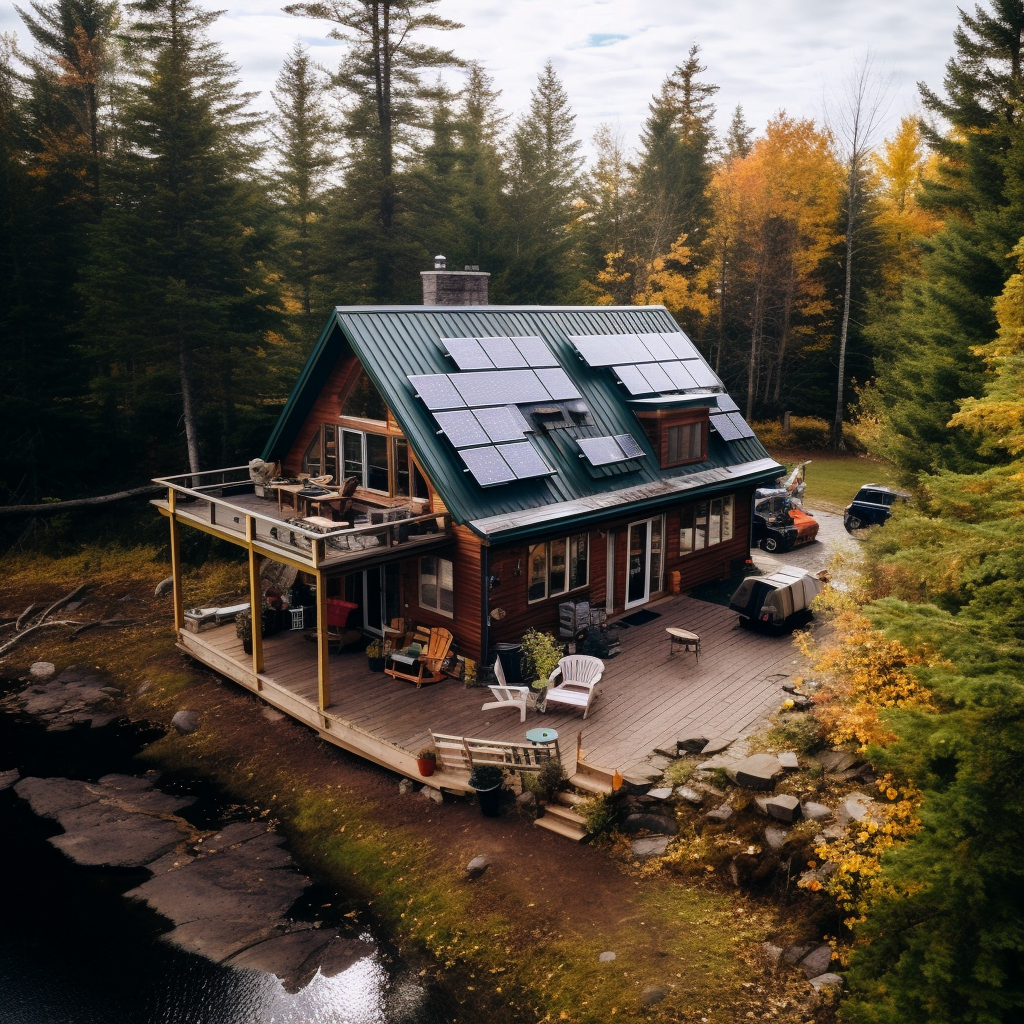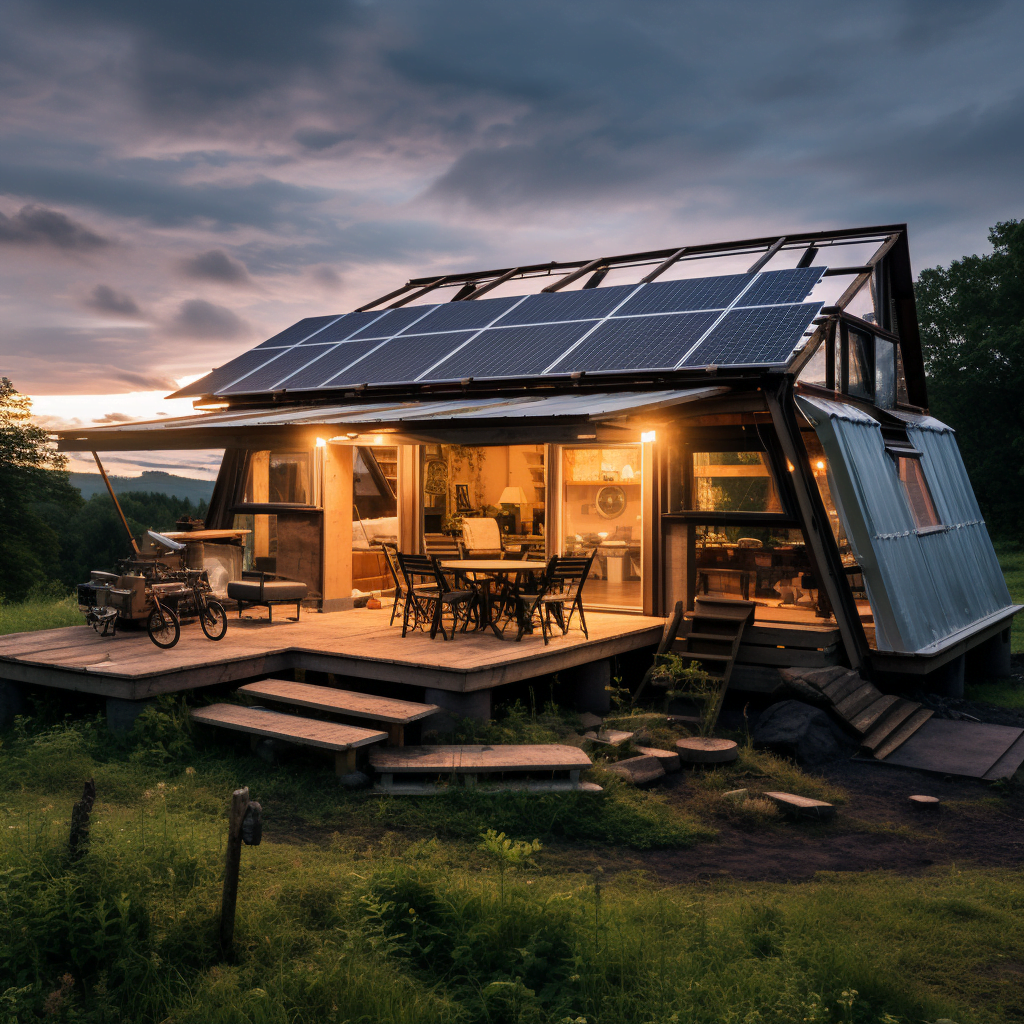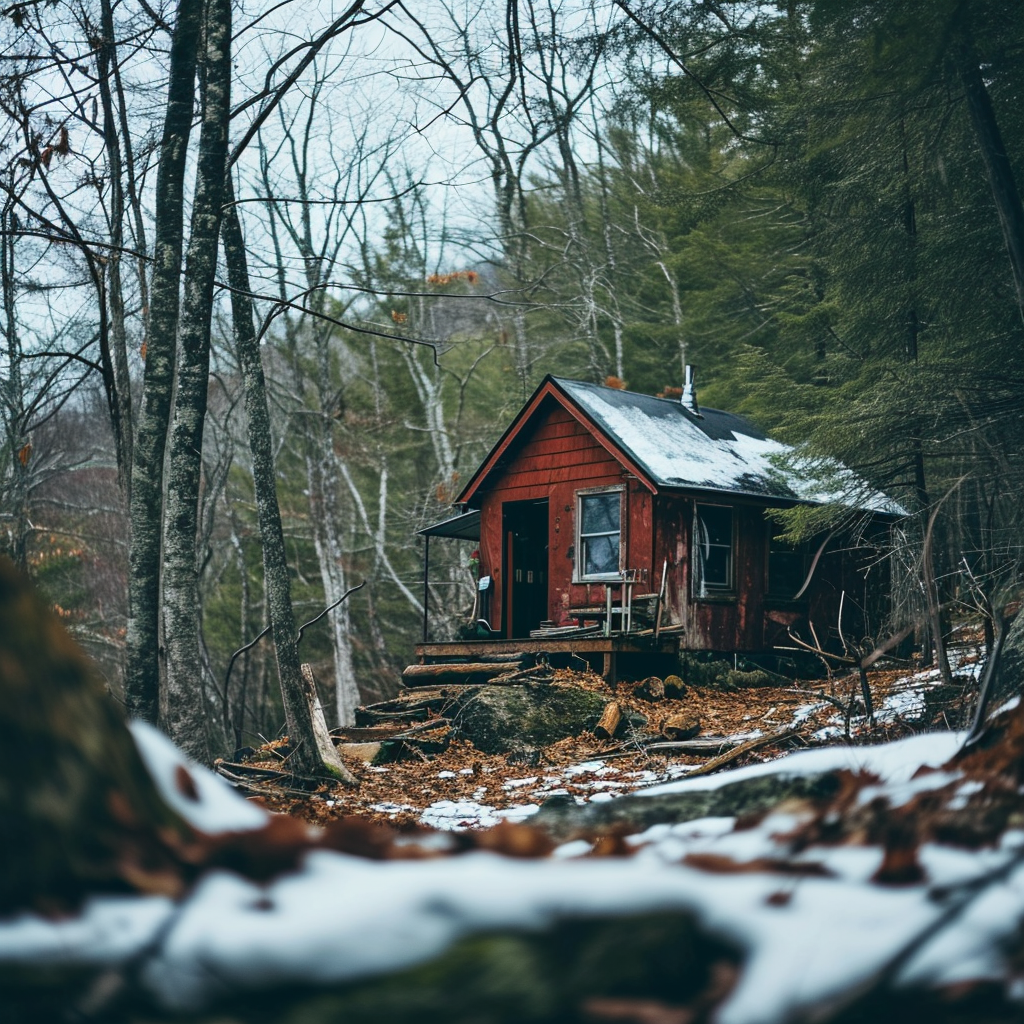Have you ever wondered Is Off-Grid Living Worth It? With the increasing popularity of sustainable living and the desire for more self-sufficiency, many individuals are considering the idea of disconnecting from traditional power sources and relying solely on renewable energy. But is it really worth the effort? In this article, we will explore the pros and cons of off-grid living, giving you a better understanding of what it entails and helping you decide if it’s the right choice for you.
Living off the grid means cutting ties with public utilities such as electricity, water, and gas. Instead, you rely on alternative sources such as solar panels, wind turbines, and rainwater collection systems. While this lifestyle can offer a sense of freedom and reduce your carbon footprint, it also comes with its own set of challenges. Maintaining and constantly monitoring these systems can be time-consuming and expensive, especially in remote areas where access to resources may be limited.
However, the benefits of off-grid living can outweigh the drawbacks for some individuals. Being self-sufficient and reducing your reliance on fossil fuels can have a positive impact on the environment. Additionally, living off the grid allows you to live a simpler and more minimalist lifestyle, free from the distractions of modern society. In the next sections, we will delve deeper into these aspects and explore the financial implications, social implications, and overall satisfaction of off-grid living. So, if you’re curious to learn more about the rewards and challenges of this alternative lifestyle, keep reading.

What is Off Grid Living?
Understanding the concept of off grid living
Off grid living refers to a lifestyle where individuals or families choose to disconnect themselves from the conventional utilities and infrastructure provided by the government or public organizations. This lifestyle involves relying on self-generated power sources, such as solar panels or wind turbines, for electricity, and obtaining water from natural sources like rainwater harvesting or well systems. It also often entails growing one’s own food and adopting sustainable practices to reduce dependency on external resources.
The benefits and challenges of living off the grid
Living off the grid comes with a set of benefits and challenges. On the positive side, it allows individuals to reduce their dependency on utilities and infrastructure, increase self-sustainability and resilience, and lower their environmental impact and carbon footprint. Additionally, off grid living can provide a closer connection to nature and a simpler lifestyle, allowing individuals to appreciate the beauty and tranquility of their surroundings.
However, there are also several challenges associated with off grid living. Initial setup and maintenance costs can be high, as individuals need to invest in sustainable infrastructure and equipment. Furthermore, access to modern amenities and conveniences may be limited, leading to potential inconveniences and adjustments. In addition, off grid living demands a higher level of personal responsibility and manual labor, as individuals have to actively manage their resources and systems. Lastly, there may be a potential for social isolation and limited community support, as rural or remote locations are often chosen for off grid living.
Is Off-Grid Living Worth It?
Is off-grid living worth it? This question resonates with many who yearn for a sustainable, self-sufficient lifestyle, disconnected from conventional utilities. Off-grid living means relying on alternative sources like solar panels, wind turbines, and rainwater collection systems, instead of public electricity, water, and gas. It’s a lifestyle that offers freedom, a reduced carbon footprint, and a connection to nature, fostering a simpler, more minimalist way of life. However, it’s not without its challenges. The initial setup and maintenance of these systems can be costly and time-consuming, particularly in remote areas with limited resource access. This section examines the financial, environmental, and personal implications of such a lifestyle, weighing the pros and cons to help you decide if off-grid living aligns with your values and goals.
Evaluating the Pros of Off Grid Living
Reduced dependency on utilities and infrastructure
One of the main advantages of off grid living is a reduced dependency on public utilities such as electricity, water, and sewage systems. By generating their own power through renewable energy sources, individuals can become more self-sufficient and have greater control over their energy consumption. This can lead to significant financial savings, as utility bills become a thing of the past.
Increased self-sustainability and resilience
Living off the grid encourages individuals to adopt sustainable practices in their daily lives. By growing their own food, conserving water, and managing waste effectively, off-griders become more self-sustainable. This level of self-sufficiency not only reduces reliance on external sources but also increases resilience in the face of potential disruptions to traditional infrastructure.
Lower environmental impact and carbon footprint
Off grid living can significantly reduce a person’s environmental impact. By relying on renewable energy sources and practicing sustainable living, off-griders minimize their carbon footprint. They also decrease the demand for fossil fuels, which contributes to the reduction of greenhouse gas emissions and supports the transition to a cleaner and more sustainable planet.
Closer connection to nature and simpler lifestyle
Living off the grid often means residing in rural or remote areas, which allows individuals to be closer to nature. This proximity enables a deeper connection with the natural world and provides ample opportunities for outdoor activities like gardening, hiking, and wildlife observation. In addition, the simplicity of off grid living offers a reprieve from the fast-paced modern lifestyle, fostering a sense of calmness and peace.
Examining the Cons of Off Grid Living
Initial high setup and maintenance costs
One of the major challenges of off grid living is the initial investment required for setting up the necessary infrastructure. Solar panels, wind turbines, water collection systems, and other sustainable technologies can be costly. Besides, ongoing maintenance and repairs can pose additional expenses. However, it is important to take into account the long-term financial benefits and potential savings that can be achieved by reducing or eliminating utility bills.
Limited access to modern amenities and conveniences
Living off the grid may mean sacrificing certain modern amenities and conveniences that are taken for granted in urban areas. Access to high-speed internet, cable television, and other technologies may be limited or non-existent in remote locations. This can pose challenges, especially for those who rely heavily on technology for work or entertainment. However, many off-griders find alternative ways to stay connected and meet their needs through satellite internet or other options.
Higher demand for personal responsibility and manual labor
Off grid living requires individuals to take on more personal responsibility and engage in manual labor. They must actively manage their resources, monitor energy usage, and maintain their infrastructure. This can be physically demanding and time-consuming, especially for those who are not accustomed to such tasks. However, many off-griders appreciate the sense of accomplishment and self-sufficiency that comes with these responsibilities.
Potential for social isolation and limited community support
Living off the grid often involves residing in remote or sparsely populated areas, which can result in social isolation and limited community support. Individuals and families may have to travel long distances to access essential services and resources, and the lack of nearby neighbors can reduce opportunities for social interaction. However, many off-griders build strong communities with like-minded individuals, sharing knowledge, resources, and experiences.

Financial Considerations of Off Grid Living
Calculating the upfront expenses and ongoing costs
When considering off grid living, it is crucial to assess the upfront expenses associated with setting up the necessary infrastructure. These costs can vary depending on individual needs, location, and desired level of sustainability. It is essential to research and obtain accurate estimates for solar panels, batteries, wind turbines, water systems, and other components. Additionally, ongoing expenses such as maintenance, repairs, and replacements should be factored into the financial calculations.
Exploring potential savings and long-term financial benefits
While the initial costs of off grid living can be significant, there are potential long-term financial benefits to consider. By reducing or eliminating utility bills, individuals can achieve significant savings over time. Additionally, off-griders are often able to grow their own food, decreasing grocery bills and reliance on store-bought produce. Furthermore, the increased self-sufficiency and sustainable practices can lead to reduced consumption, resulting in overall financial savings.
Environmental Impact of Off Grid Living
Reducing reliance on fossil fuels and promoting renewable energy sources
Off grid living plays a vital role in reducing reliance on fossil fuels and promoting the use of renewable energy sources. By generating electricity through solar panels or wind turbines, individuals lessen the demand for traditional power sources that contribute to climate change. This transition to cleaner energy can help accelerate the global shift towards sustainable practices and contribute to the preservation of the environment.
Mitigating carbon emissions and decreasing ecological footprint
Living off the grid significantly reduces carbon emissions and ecological footprints. The reliance on renewable energy sources eliminates the need for burning fossil fuels, resulting in a lower carbon footprint. Additionally, practicing sustainable living by growing food, conserving water, and reducing waste further minimizes the impact on the environment. Off-griders leave a smaller ecological footprint and pave the way for a more sustainable future.
Self-Sustainability and Resilience in Off Grid Living
Building skills for self-sufficiency and emergency preparedness
Off grid living necessitates individuals to develop a range of skills for self-sufficiency and emergency preparedness. From growing and preserving food to implementing rainwater harvesting systems, off-griders become proficient in sustainable practices. They learn to adapt to changing circumstances, ensuring their resilience in the face of natural disasters or disruptions to traditional infrastructure. These acquired skills empower individuals to take control of their own well-being and reduce reliance on external help.
Harnessing renewable resources for food, water, and energy production
Living off the grid allows individuals to harness renewable resources for various aspects of daily life. Organic gardening and permaculture techniques can provide a sustainable source of fresh produce and reduce dependency on supermarkets. Water can be collected and conserved through rainwater harvesting or well systems. Renewable energy sources, such as solar panels or wind turbines, can power homes and support daily energy needs. By utilizing these resources efficiently, individuals can achieve self-sufficiency and live sustainably.
Psychological and Emotional aspects of Off Grid Living
Finding peace and solitude in nature
Off grid living offers individuals the opportunity to find peace and solitude in nature. Being surrounded by natural landscapes, away from the hustle and bustle of city life, allows for moments of tranquility and relaxation. The connection with nature can have positive effects on mental well-being, reducing stress and anxiety. It provides an escape from the fast-paced, technology-driven world and fosters a sense of peace and harmony.
Mental health implications of living in harmony with the environment
Living off the grid and in harmony with the environment can have significant mental health implications. The simplicity and connection to nature can promote a positive mindset and improve overall well-being. Engaging in physical labor and being self-sufficient can enhance a sense of accomplishment and purpose. Additionally, the reduction in noise pollution and exposure to stressors commonly found in urban areas can contribute to better mental and emotional health.
Factors to Consider before Choosing Off Grid Living
Personal preferences and lifestyle goals
Before embarking on the off grid living journey, it is essential to evaluate personal preferences and lifestyle goals. Off grid living requires a significant commitment, and individuals must consider if the lifestyle aligns with their values and objectives. Factors such as the desire for self-sufficiency, solitude, and a closer connection to nature should be taken into account to ensure a fulfilling and satisfying experience.
Location and climate suitability
Choosing the right location is crucial for successful off grid living. Factors such as climate, access to water sources, and land suitability for growing food should be considered. Researching the region’s weather patterns, natural resources, and suitability for sustainable living practices is essential to ensure the chosen location can support off-grid needs effectively.
Physical and mental health considerations
Off grid living can be physically demanding, requiring individuals to engage in manual labor and adapt to a different lifestyle. Those with physical limitations or health conditions should carefully consider their ability to manage the various tasks involved. Mental health should also be taken into account, as living in isolation or remote areas can be challenging for some individuals. Prioritizing personal well-being is essential when considering off grid living.

Real-life Examples and Success Stories
Profiles of individuals and families thriving in off grid living
There are numerous success stories of individuals and families thriving in off grid living. From couples living on self-sufficient farms to families living off the land in remote areas, these examples demonstrate the feasibility and rewards of this lifestyle. These individuals have embraced off grid living as a means of achieving their personal goals, fostering strong connections with nature, and enjoying a simpler, more sustainable way of life.
Lessons learned and tips from experienced off-griders
Experienced off-griders have valuable lessons and tips to share with those considering this lifestyle. They often emphasize the importance of careful planning, realistic expectations, and the willingness to continuously learn and adapt. Tips may include setting up multiple energy sources, implementing efficient systems for water collection and usage, and investing in sustainable infrastructure. Learning from those who have already navigated the challenges of off grid living can be invaluable for newcomers to this lifestyle.
Conclusion
Is off grid living worth it? The answer depends on an individual’s priorities, values, and goals. Living off the grid offers a range of benefits, including reduced dependency on utilities, increased self-sustainability, and a lower environmental impact. However, it also comes with challenges such as high setup costs, limited access to modern amenities, and increased personal responsibility. Financial considerations, environmental impact, self-sustainability, and psychological well-being are all important factors to consider when weighing the pros and cons of off grid living. Ultimately, the decision to embrace off grid living is a personal one that requires careful consideration and a genuine desire for a simpler, more sustainable lifestyle.




